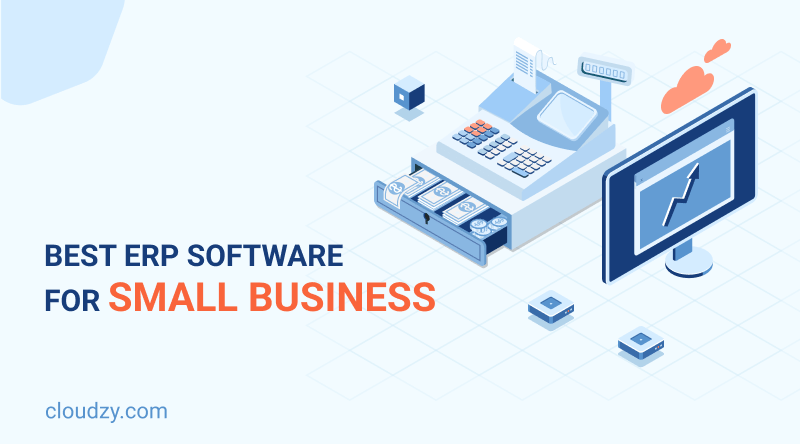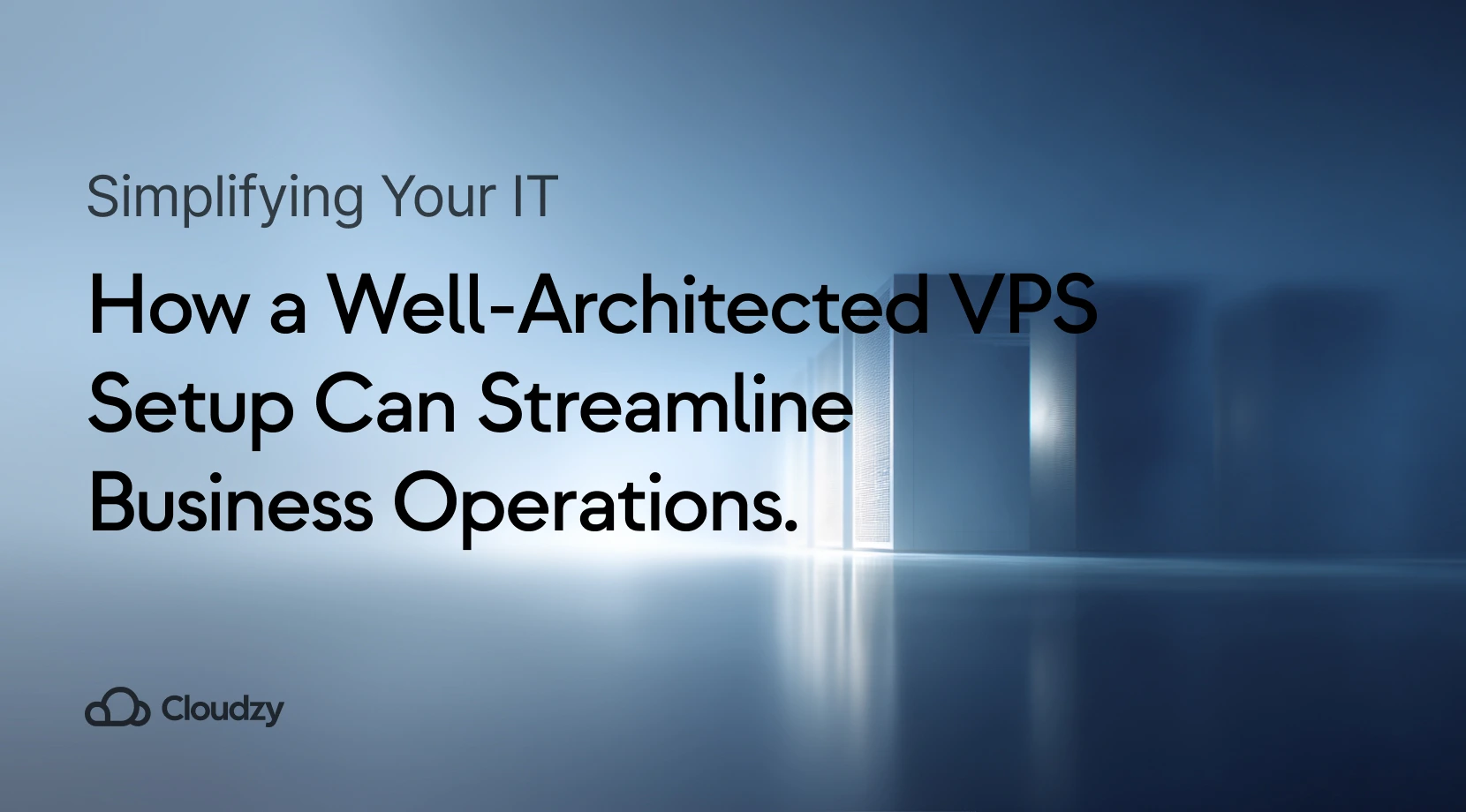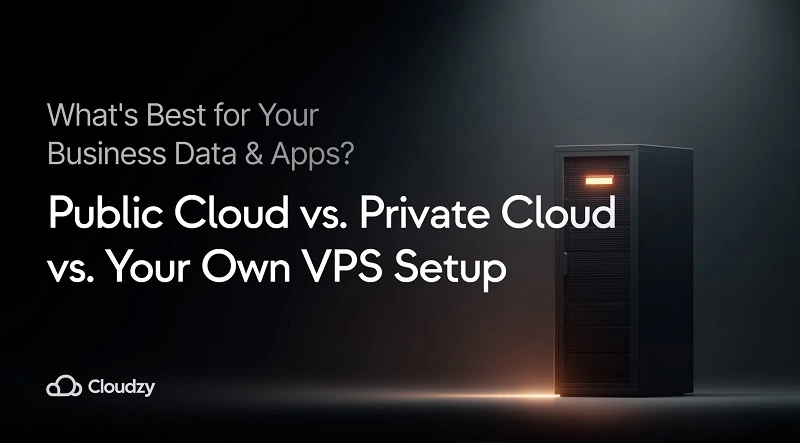Selecting the best ERP for small business can feel overwhelming, especially for companies that need both efficiency and scalability. These small business ERP software solutions go beyond basic accounting tools, offering integrated systems for everything from financial management to inventory control and customer relationship management.
This article will explore the top ERP systems for small companies in 2025—including popular cloud ERP for small business options and versatile small ERP systems—by highlighting their key features, pricing models, and what makes them ideal for your needs.
Why Should SMBs use an ERP
An ERP (Enterprise Resource Planning) system is more than just accounting software—it’s a modular solution that integrates and manages essential business functions. While financial management remains at its core, modern ERP systems extend far beyond, incorporating business intelligence (BI), customer relationship management (CRM), materials resource planning (MRP), and supply chain management.
Adopting the best ERP for small businesses can greatly improve operational efficiency, financial oversight, and scalability. Instead of relying on separate tools, ERP software connects all critical processes, creating a streamlined, data-driven approach to running a business.
By centralizing information and automating repetitive tasks, small business ERP software reduces manual workload, supports better decision-making, and improves resource management. Modules such as payroll, HR, inventory management, and logistics can be tailored to fit industry-specific needs, whether a business focuses on retail, manufacturing, or distribution.
However, selecting the appropriate ERP system is the tricky part. Each business has unique needs, and choosing between a cloud ERP for small businesses or specialized ERP systems for small companies requires careful consideration of features, scalability, and integration capabilities.
How to Choose the Best ERP for Small Businesses
Deciding on an ERP system affects nearly every part of your organization. By breaking down the process into clear steps, you can choose an ERP that meets your unique needs and supports future growth. Here’s how to do it:
1. Understand Your Business Requirements
- Gather Comprehensive Input: Talk to production workers, purchasing managers, executive leadership, customers, suppliers, and even former employees. Collecting diverse perspectives helps you develop a complete list of features the best ERP for small businesses should cover, including everything from financial reporting and project management to specific automation needs.
- Prioritize and Detail Your Needs: Once you’ve gathered input, sort your requirements into “must have,” “nice to have,” and lower-priority categories. A detailed requirements template is invaluable as it can help break down functionalities (for instance, how the general ledger handles recurring transactions) into actionable items. This clarity forms the backbone of your best ERP for small businesses selection process.
2. Secure Upper Management and Team Support
- Obtain Executive Buy-In: A strong sponsor from the executive team (like a CEO, COO, or CFO) can be the difference between a smooth rollout and a rocky implementation. Their active support helps guide decision-making and overcome internal roadblocks.
- Empower Internal Champions: Appoint key representatives from departments such as accounting, inventory, order management, human resources, and sales. Their insights will shape the requirements for the best ERP for small businesses, and their backing is necessary for a smooth transition to your new small business ERP software.
3. Define Functional and Integration Requirements
- Identify Key Processes and Pain Points: Dig into questions like: How can we improve financial reporting accuracy? What automations are needed for processes such as job costing or supply chain management?
- Plan for Compatibility and Integration: Your ERP should play nicely with existing tools—whether it’s accounting software, a CRM, or other business applications. Look for the best ERP for small businesses that offer out-of-the-box integrations, support industry-standard APIs (like REST and SOAP), and provide simple data transfer options via CSV import/export.
- Emphasize Ease of Use: An intuitive interface, role-based access, and mobile-friendly features help your team get up to speed quickly. Many cloud ERP for small business solutions focus on delivering a responsive user experience with readily available help resources, which minimizes training time and increases adoption.
- Tailor to Your Industry: Some ERP modules are designed for sectors such as manufacturing, distribution, or retail. Make sure your system can handle specific needs like multi-currency transactions, localized tax rules, or complex sales orders..
4. Set a Realistic Budget and Evaluate ROI
- Outline All Costs: Consider licensing fees, hardware (for on-premises setups), data conversion, training, consulting, and ongoing maintenance. Transparent pricing models, be it subscription-based like cloud ERP for small business or fixed licensing fees, help you keep the project within budget.
- Review the Total Cost of Ownership: Weigh upfront expenses against long-term benefits. Compare costs over a five- to seven-year timeframe, taking into account efficiency gains and potential revenue growth. This helps you determine if the investment meets your ROI threshold.
- Consider Cloud Costs: For SMBs evaluating a cloud-based ERP deployment, it helps to grasp the underlying cloud costs. Once you’ve got that picture, you might be pleased to know that Cloudzy’s Cloud Server offers a highly affordable solution loaded with features such as lightning-fast 10Gbps connections, a 99.95% uptime guarantee, and round-the-clock 24/7 support. Plus, with flexible payment options like credit cards, PayPal, Alipay, Bitcoin, and other cryptocurrencies, managing your budget becomes hassle-free.
5. Plan for Technology, Scalability, and Customization
- Future-Proof Your ERP Investment: Look for a modular system that grows with your business. A scalable ERP can add functionalities and support more users as your company expands, making it a smart choice for any small ERP system setup.
- Consider Deployment Options: Decide between on-premises, cloud-based, or hybrid models. Many find that a cloud ERP for small business offers the flexibility and lower upfront costs needed to adapt to changing circumstances. If you’re also evaluating your IT infrastructure to support your new ERP, our How to Build a Server for Your Small Business
 Cloud VPS
Cloud VPS
Want a high-performance Cloud VPS? Get yours today and only pay for what you use with Cloudzy!
Get Started Hereguide offers practical, step-by-step advice. Cloud VPS
Cloud VPS
Want a high-performance Cloud VPS? Get yours today and only pay for what you use with Cloudzy!
Get Started Here - Customize to Fit Your Unique Workflows: Your organization may have processes that differ from industry norms. Look for ERP systems for small companies with advanced customization capabilities—like user-defined fields and adaptable workflows—to tailor the software to your exact needs.
6. Evaluate Vendors and Their Implementation Processes
- Research Vendor Reputation: Investigate industry reports and user reviews on platforms like G2, Capterra, or Gartner Peer Insights, as well as gather testimonials. A vendor with strong industry expertise and a history of successful implementations is a good sign.
- Review the Vendor’s Implementation Process: Examine the full scope of the rollout—from pre-launch planning and training to post-launch support. Ask about customization capabilities and the level of hands-on assistance provided. This will help you gauge how the vendor handles complex integration and support needs.
- Focus on Support & Security: A comprehensive support package, complete with training, clear documentation, and responsive technical assistance is a must. Also, the ERP should come with strong data protection measures, secure backup options, and compliance with industry standards. These features are especially important in cloud ERP for small business setups, since modern ERP systems manage sensitive information, and it’s important to have reliable network security and a secure web gateway.
7. Map Out the Implementation and Ongoing Support
- Create a Detailed Project Timeline: Plan each phase of the implementation, from discovery and design to configuration, testing, and deployment. A well-structured timeline minimizes unexpected delays and keeps the project on track.
- Prepare for Change Management: Identify potential obstacles early—like retraining staff or adjusting current workflows—and develop a plan to address them. This preparation helps maintain smooth operations as you transition to your new system.
- Plan for Long-Term Support: Determine the level of ongoing support your business needs. Options can range from dedicated account managers to tiered support packages that include proactive maintenance. This ongoing support is necessary for keeping your small ERP systems running efficiently over time.
Top ERP Solutions for Small Businesses (2025)
Choosing the best ERP for small businesses is a big decision for any company aiming to stay competitive and organized. With so many options out there, it’s important to understand the features, pricing models, and pros and cons of different systems. If you’re considering cloud ERP for small businesses, or looking for a small ERP system, here’s a list of the top solutions that could fit your needs.
| ERP System | Deployment | Relative Price | Most Suitable For | Key Features Summary |
| Microsoft Dynamics 365 Business Central | Cloud/On-Premises | $$$ | Operations/SMBs | Integrated with Microsoft 365, AI-powered workflows, Power BI, extensive add-ons. |
| Oracle NetSuite | Cloud-based | $$ | Overall ERP for growing companies | Comprehensive modules, real-time dashboards, 360° view across subsidiaries. |
| SAP Business One | Cloud/On-Premises | $$$ | Industry-specific, overall ERP | Unified platform with integrated CRM, real-time insights, customizable modules. |
| Sage Intacct | Cloud-based | $$ | Finance-focused SMBs | Advanced accounting, multi-dimensional reporting, strong integration with Salesforce. |
| Acumatica | Cloud-based | $$$ | Growing SMBs, digital resilience | Intuitive, mobile-first, flexible non-user-based pricing, easy integration. |
| Odoo ERP | Cloud/On-Premises | $$ | Affordable & customizable for startups | Open-source, modular design, integration-friendly, freemium options available. |
1. Microsoft Dynamics 365 Business Central
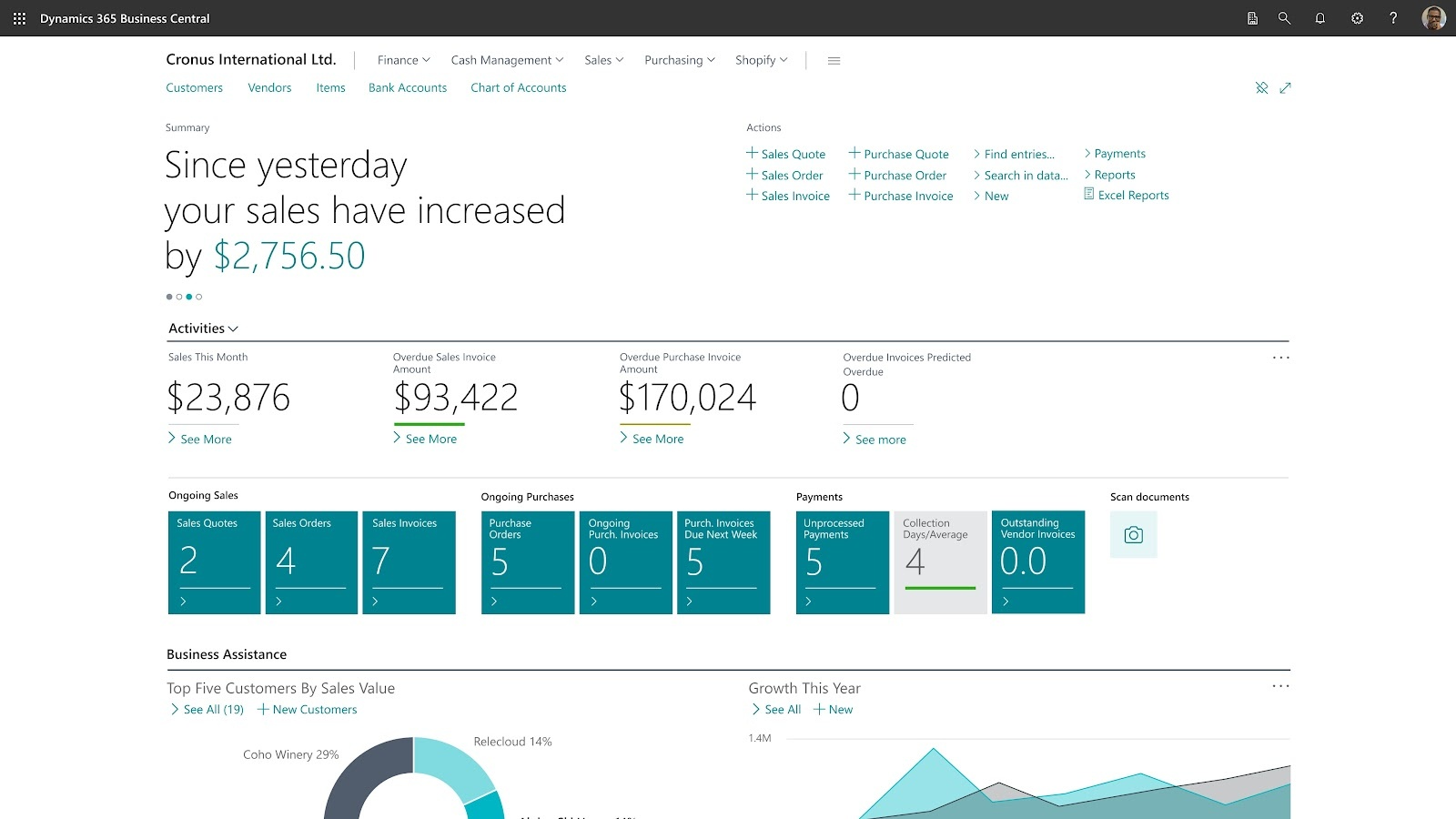
Microsoft Dynamics 365 Business Central is an integrated ERP platform built for small to medium-sized businesses. Hosted on Microsoft’s secure Azure cloud (with on-premises options too), it unifies finance, sales, operations, and more to drive efficiency and growth.
Key Features:
- Access via web, mobile devices, desktops, and tablets
- Out-of-the-box integrations with Microsoft 365 (Outlook, Excel, Word, etc.)
- AI-powered billing, accounting workflows, and real-time business intelligence with Power BI
- Customization tools including APIs and Visual Studio Code
- “Tell-Me” feature for quick navigation and search
- Wide range of third-party add-ons available
Pricing Model:
Relative pricing is in the mid-to-high range, with tiered plans (e.g., Team Members, Essentials, Premium) starting at around $8 to $100 per user per month.
Cons:
- Premium plans can be costly
- Customization may require technical expertise, which could be challenging for very small teams
2. Oracle NetSuite
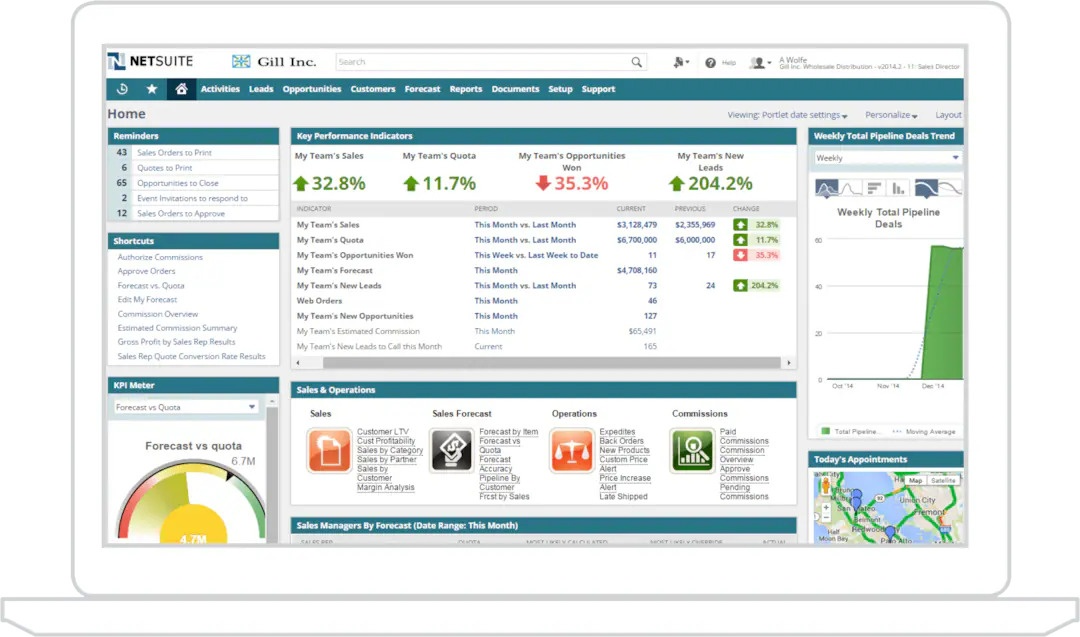
Oracle NetSuite is a cloud-based ERP suite that brings together accounting, order management, inventory, and more into a single, integrated platform. It’s ideal for growing businesses looking for a one-stop solution that scales with their operations.
Key Features:
- Pre-built, role-based dashboards and KPIs for real-time insights
- Comprehensive applications covering accounting, inventory, production, and supply chain management
- 360-degree view across multiple subsidiaries and business units
- Phased implementation approach tailored to business needs
Pricing Model:
- Typically starts around $20,000 annually, with monthly subscriptions starting at about $999 plus approximately $120 per user.
Cons:
- May be on the pricier side for very small companies
- Additional modules and customizations can further increase the overall cost
3. SAP Business One
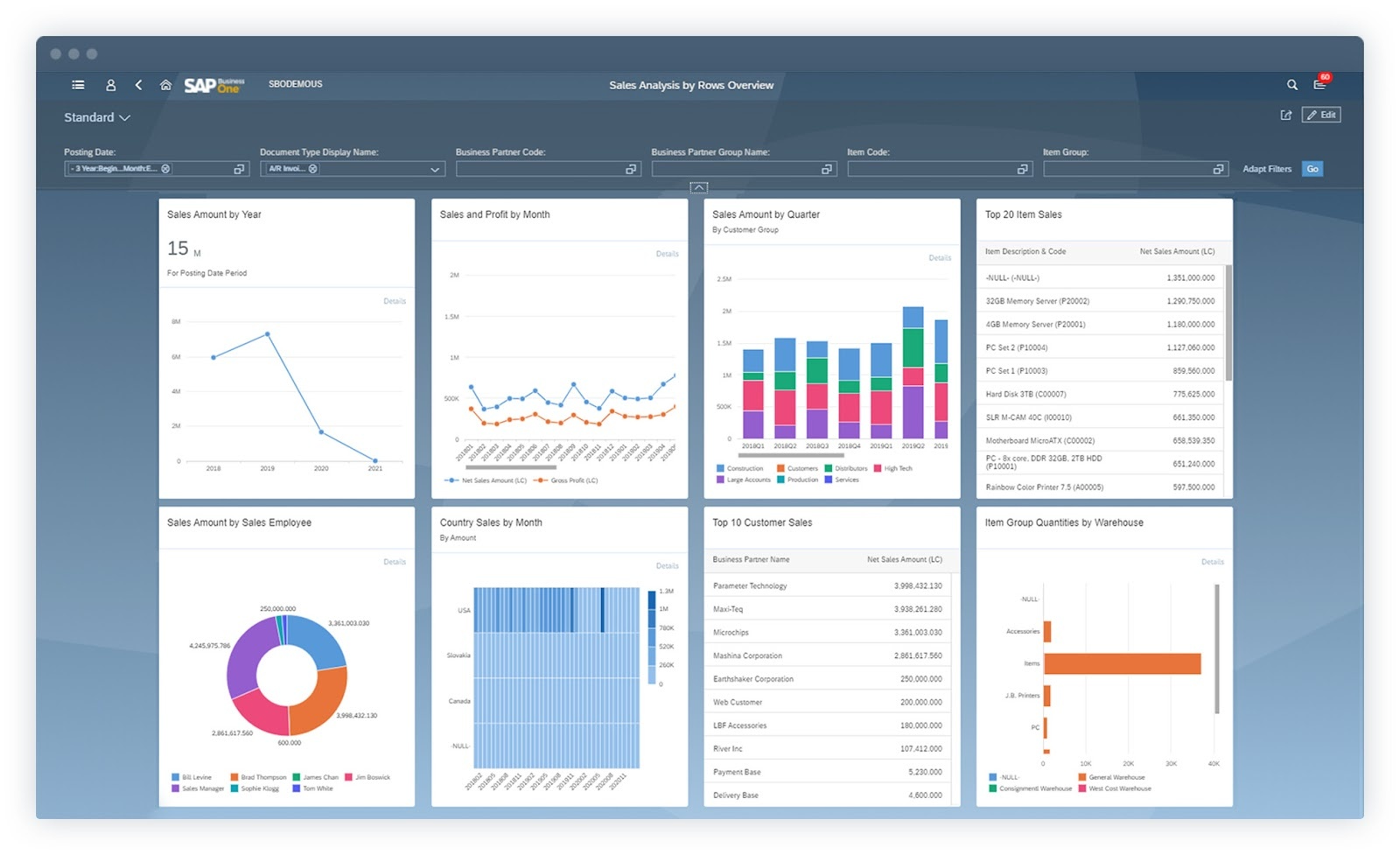
SAP Business One is a powerful, adaptable ERP designed specifically for small to medium-sized enterprises. Available on-premises or in the cloud, it helps businesses manage everything from financials to customer relationships with ease.
Key Features:
- Modules for payroll, inventory, order, logistics, and procurement management
- Comprehensive accounting capabilities including general ledger and subledger functions
- Industry-specific customization for manufacturing, retail, and distribution
- Integrated CRM and advanced analytics for real-time decision-making
Pricing Model:
- Relative pricing is in the mid-to-high range with a free trial option available; pricing can range from monthly fees (e.g., $1,800/month for smaller implementations) plus one-time setup and training costs.
Cons:
- Implementation can be complex and costly
- It may require additional customization to meet unique business needs
4. Sage Intacct
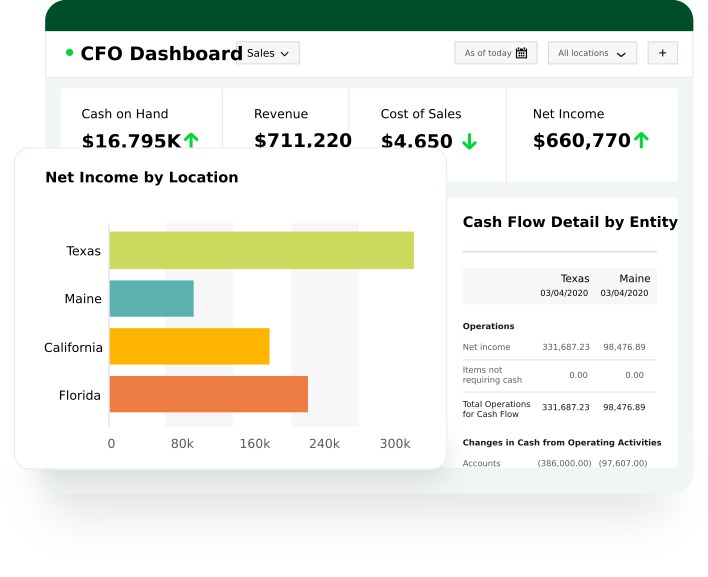
Sage Intacct is a cloud-focused ERP solution that shines in financial management. Tailored for small and medium-sized businesses, it provides advanced accounting, payroll, and reporting features to enhance financial oversight and decision-making.
Key Features:
- Cloud accounting with multi-dimensional reporting and predictive insights
- Robust enterprise accounting and payroll management
- Integrated collaboration tools and subscription billing options
- Seamless integration with third-party CRM solutions like Salesforce
Pricing Model:
- Positioned as mid-range with subscription-based pricing; specific pricing details vary based on modules and user requirements.
Cons:
- May need additional modules or integrations for complete ERP functionality beyond finance
- Limited functionalities outside core financial management
5. Acumatica
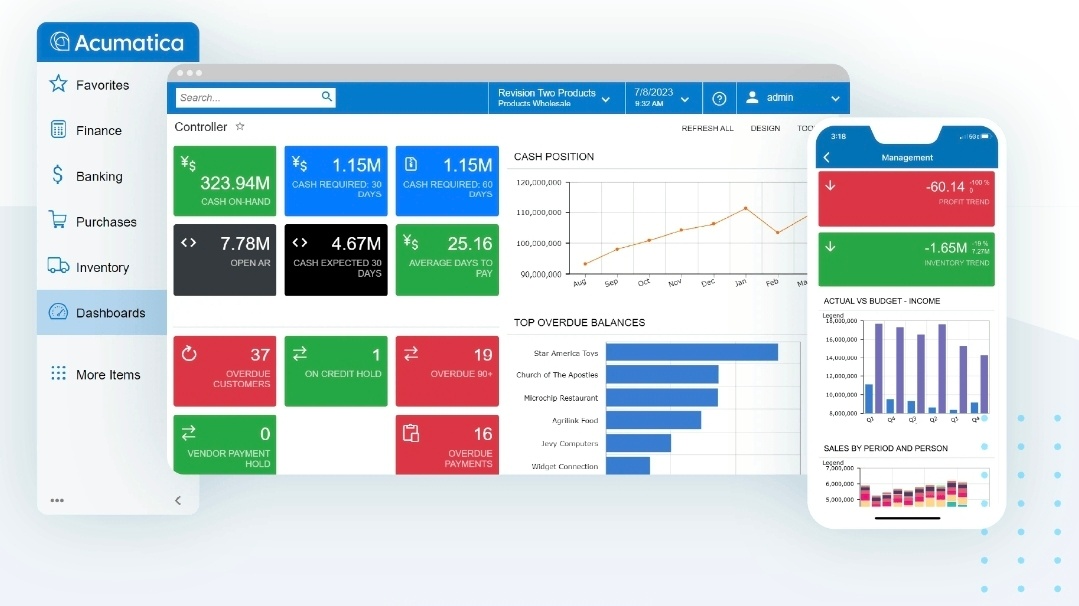
Acumatica is a cloud-based ERP solution known for its intuitive design and flexibility. It’s built for growing small and mid-market companies and offers a modular approach that can adapt as your business evolves.
Key Features:
- Payroll, inventory, and order management with robust accounting functions
- Browser-based interface for easy mobile access
- Automated invoice processing and real-time analytics
- Seamless integration with other business applications
Pricing Model:
- Falls within the mid-range pricing bracket; Acumatica is noted for its non-user-based pricing model, making it appealing for growing companies.
Cons:
- Licensing cost estimation can be challenging
- Some standard report filters may need further customization
6. Odoo ERP
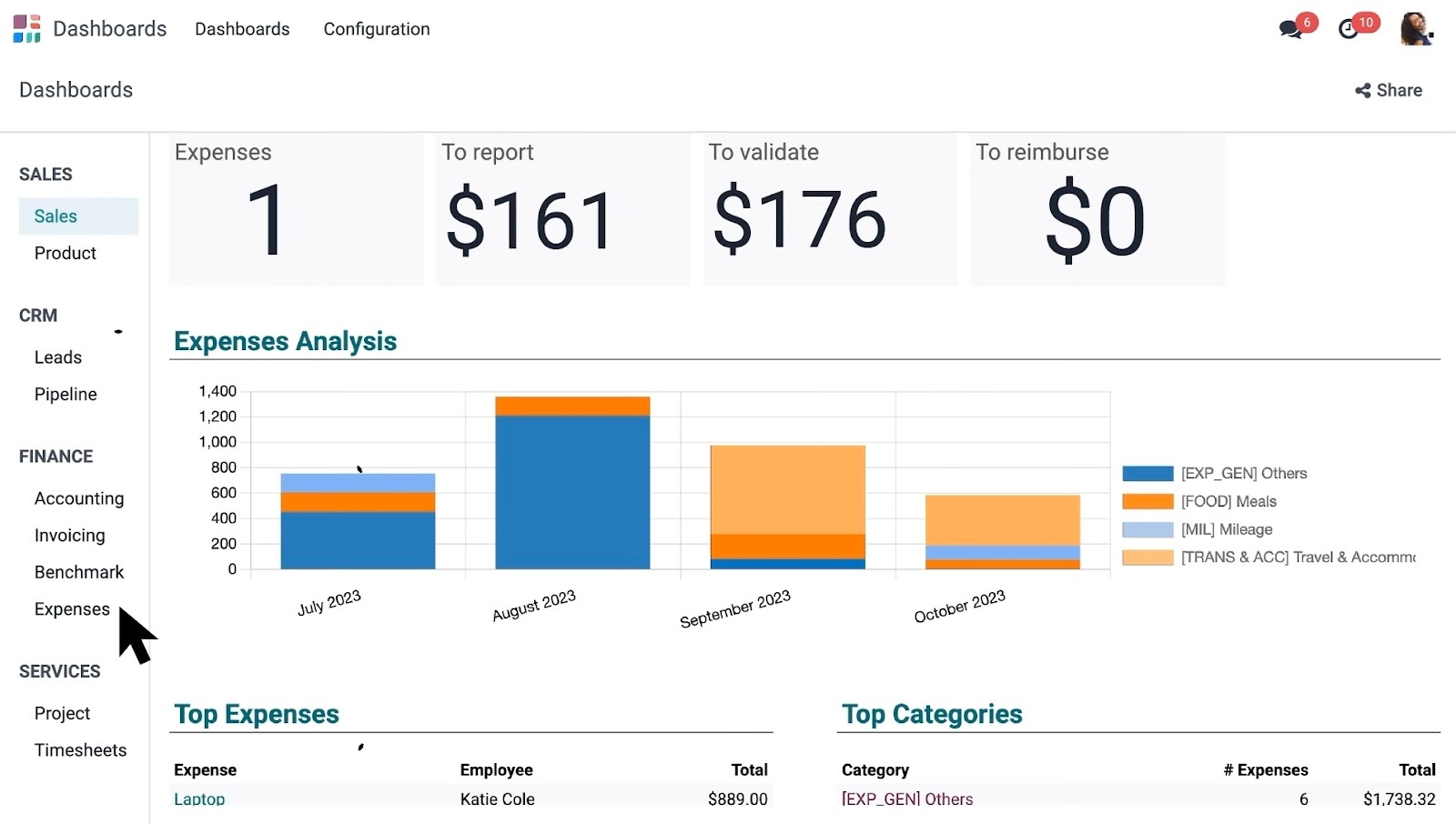
Odoo ERP is an open-source, highly customizable solution that offers a broad range of integrated business applications. It’s popular among small businesses and startups for its affordability and modular design, which lets you add features as you grow.
Key Features:
- Modular design with options for CRM, inventory, invoicing, and more
- Community edition available for free, with an enterprise version for advanced needs
- Easy integration with third-party applications
- User-friendly interface with mobile readiness
Pricing Model:
- Relative price is considered affordable with a freemium plan available and a 15-day free trial for testing the platform.
Cons:
- May require technical know-how for advanced customization
- The free/community version may lack some features of the enterprise edition
Final Thoughts
Finding the best ERP for small business requires a clear understanding of your unique needs and growth goals. The solutions discussed above offer a diverse mix of features—from powerful financial management and inventory control to flexible, cloud-based integration and advanced customization options.
To make an informed decision, it’s advisable to explore these options firsthand. Many providers, such as Microsoft Dynamics 365 Business Central, Oracle NetSuite, SAP Business One, Sage Intacct, Acumatica, Odoo ERP offer free trials or demos, allowing you to assess the software’s compatibility with your operations.

